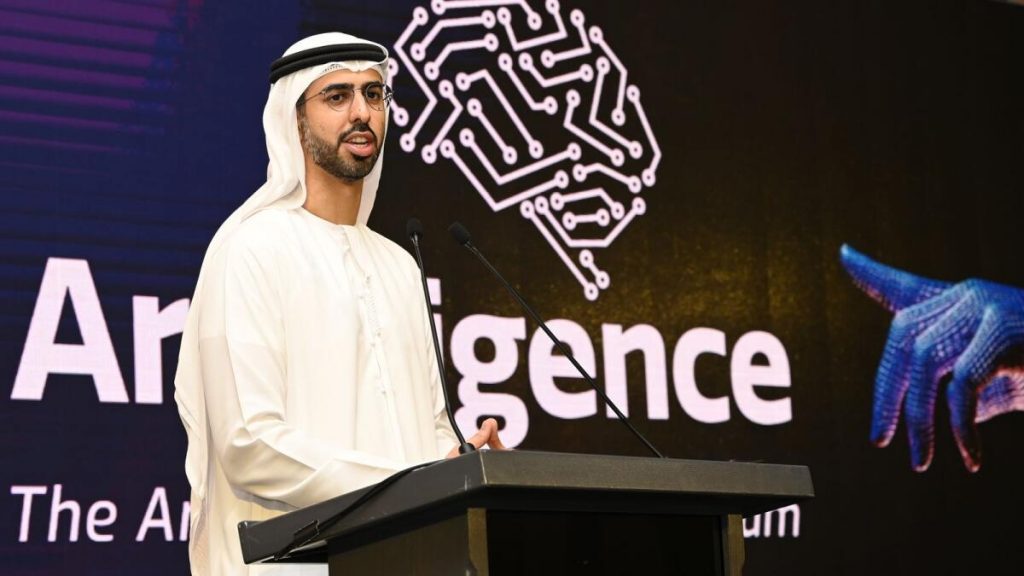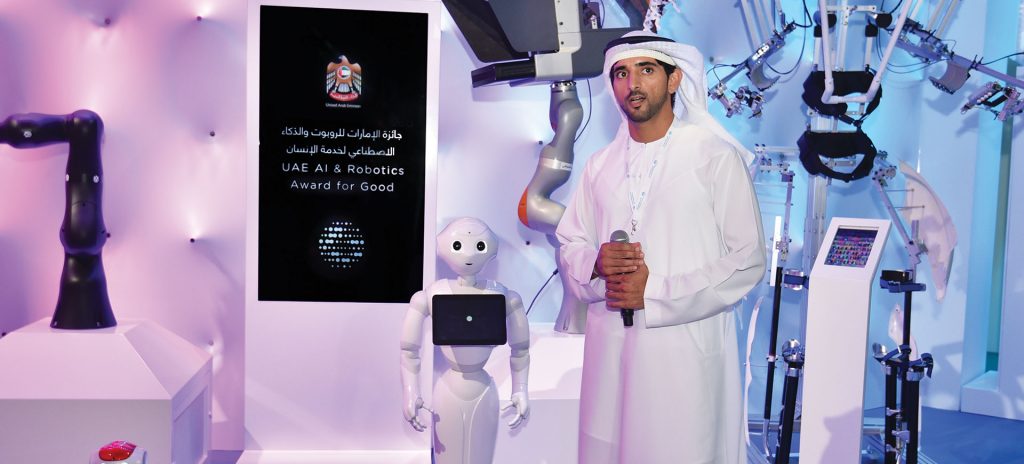The generative AI (GAI) arms race has begun, and the fear of missing out has its grip on everyone.
Yunqi Li writing for Wired magazine
Ayman Alashkar, Founder and CEO of UAE AI startup overwrite.ai, talks to Middle East’s Wired Magazine about “high accuracy, outcome-oriented content” and trends around the business application for GAI.
At the end of 2022, social media was stirred up by a chatbot that could produce text responses or create content guided by simple prompts in a stunningly human way. We’re of course talking about ChatGPT, a generative AI (GAI) that can create text based on training data it has received.
When ChatGPT’s flickering cursor moves across the screen and types out text in a few seconds, or when artworks generated by DALL-E (an AI image generator also developed by OpenAI) win art competitions, many of us are both thrilled and scared. A future where AI can undertake increasingly complicated tasks and eventually replace humans seems ever more possible. According to research by Gartner in 2023, by 2025, the global market for GAI is expected to reach $18.5 billion, with 75 percent of enterprises using some form of GAI technology in their businesses. Naturally, the GAI arms race is becoming fierce among the tech giants, and no one wants to be left out.



The Game Players

All in the race: Microsoft, OpenAI, AWS and Hugging Face, Baidu, META
Read more on these.
A Healthy Competition
For the public, it is reassuring when a top AI scientist like Yann LeCun, a Turing Award recipient, says that GAI like ChatGPT has “no knowledge of the world around them” and that they are merely “typing, writing aids.”
“I agree that at this point, ChatGPT is best to be seen as a typing and writing aid, and also one that requires a lot of attention,” said Professor Preslav Nakov, Acting Deputy Department Chair of the NLP department at the Mohamed Bin Zayed University of Artificial Intelligence.
For smaller players in the GAI game, the competition is a healthy sign. “It promotes research and development and provides more options for businesses and developers to leverage AI,”
Prof. Nakov also thinks of it as a stimulation of development. He compared the situation to how the iPhone revolutionized smartphones and sparked the development of similar technology,
“I expect several ChatGPT-like projects to flourish in the coming years and even months, and there are already serious competitors eager to catch up and improve,” he says.
“My big concerns are around the ethics we have to deal with,” says Senese. The ethical dilemmas linked to GAI may result in a tumultuous human-AI relationship.
The Middle East’s take on generative AI
The tornado of GAI has swept across the globe.
“A 2023 survey of 1,000 US business leaders found that 49 percent of companies currently use ChatGPT, and another 30 percent plan to,” Prof. Nakov pointed out.

The Middle East is not isolated from this. ChatGPT has been a topic of discussion within the UAE government leadership, with some entities like DEWA (Dubai Electricity and Water Authority) already adopting it.
The region’s blossoming startup culture is embracing increasing numbers of AI startups.
Other industries, such as real estate, oil and gas, and healthcare, are also steering toward an AI-powered future.

Ayman Alashkar, the founder of overwrite.ai, is an active public speaker and leader in AI. He believes that the trend around the business application for GAI “lies in outcome-oriented content, where high accuracy is important”.
With a background in UAE’s real estate industry, Alashkar developed overwrite.ai, a highly efficient real estate-themed GAI.
Dr. Hector Ren, Director of Engineering and Production at Inception Institute of Artificial Intelligence (IIAI), also observed this trend. “It is believed that smaller companies will lead the trend by providing specialized tools and services that support the development and deployment of language models,” he says.

In the UAE, breakthroughs in Arabic LLM are also happening quickly, creating opportunities for the Middle East to become a major player in AI development. Engineers at IIAI, a G42 company, have created the largest Arabic LLM with 13 billion parameters to date. Dr. Ren viewed it as a milestone for the Arabic NLP field that will significantly benefit the Arab world.
The GAI arms race is only just beginning. Indeed, the competition will foster revolutionary changes in our society across various industries.
This column does not necessarily reflect the opinion of overwrite.ai and its owners.
This story has been published from an article published in WIRED May, 2023.
Only the article length, headline and images have been edited to fit this blog. The original article is linked below.
More about overwrite.ai
overwrite.ai is a Foundation Language Model. A pioneering themed generative AI, delivering engagement-oriented content for the real estate industry, overwrite.ai creates the marketing content that powers the real estate industries of the UAE, KSA, Egypt and Lebanon.
For informative news and views on the world of real estate, proptech and AI, follow overwrite on Instagram and LinkedIn, and keep up-to-date with our weekly NewsBites blog.
overwrite.ai | real estate themed generative AI



